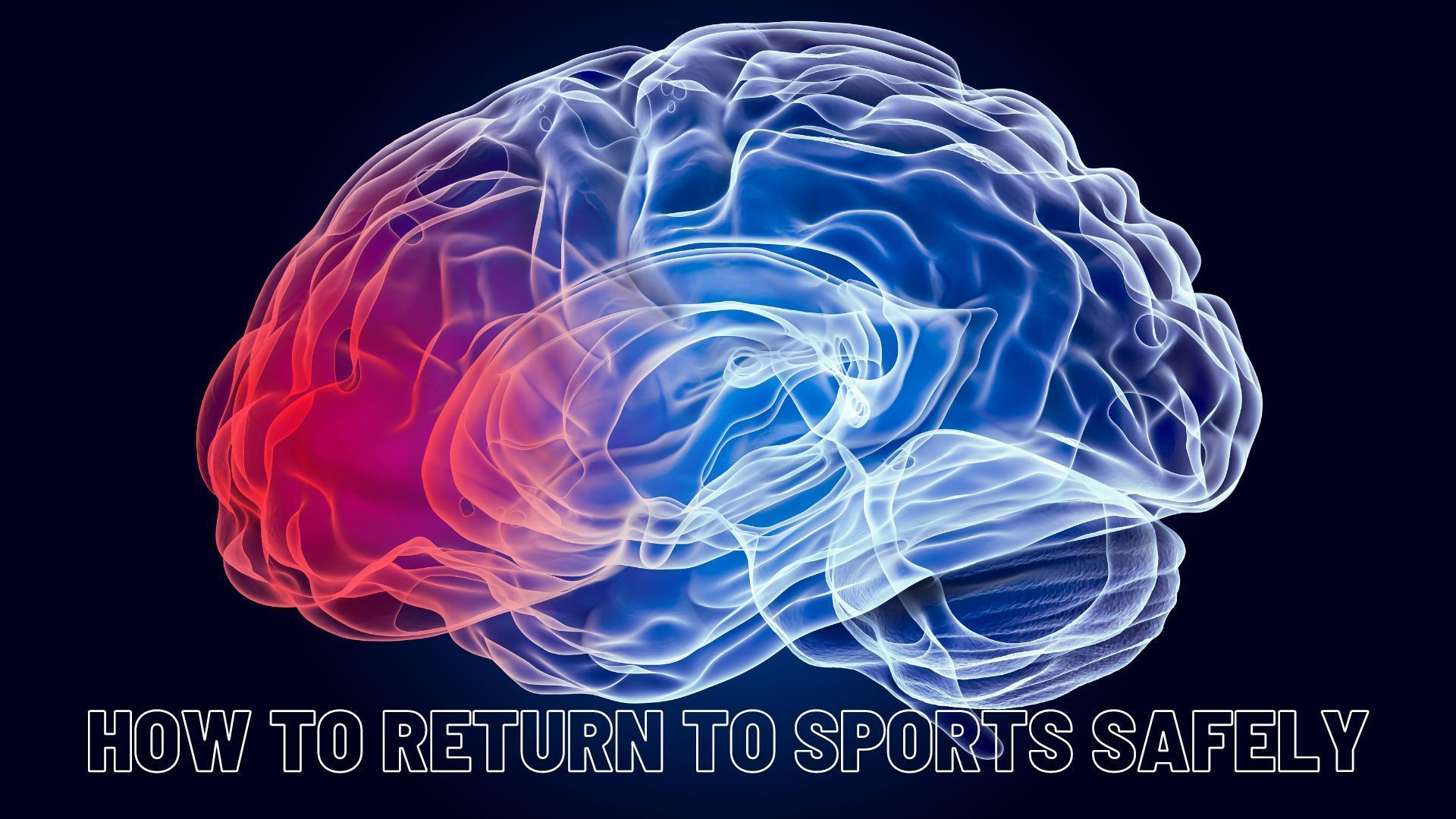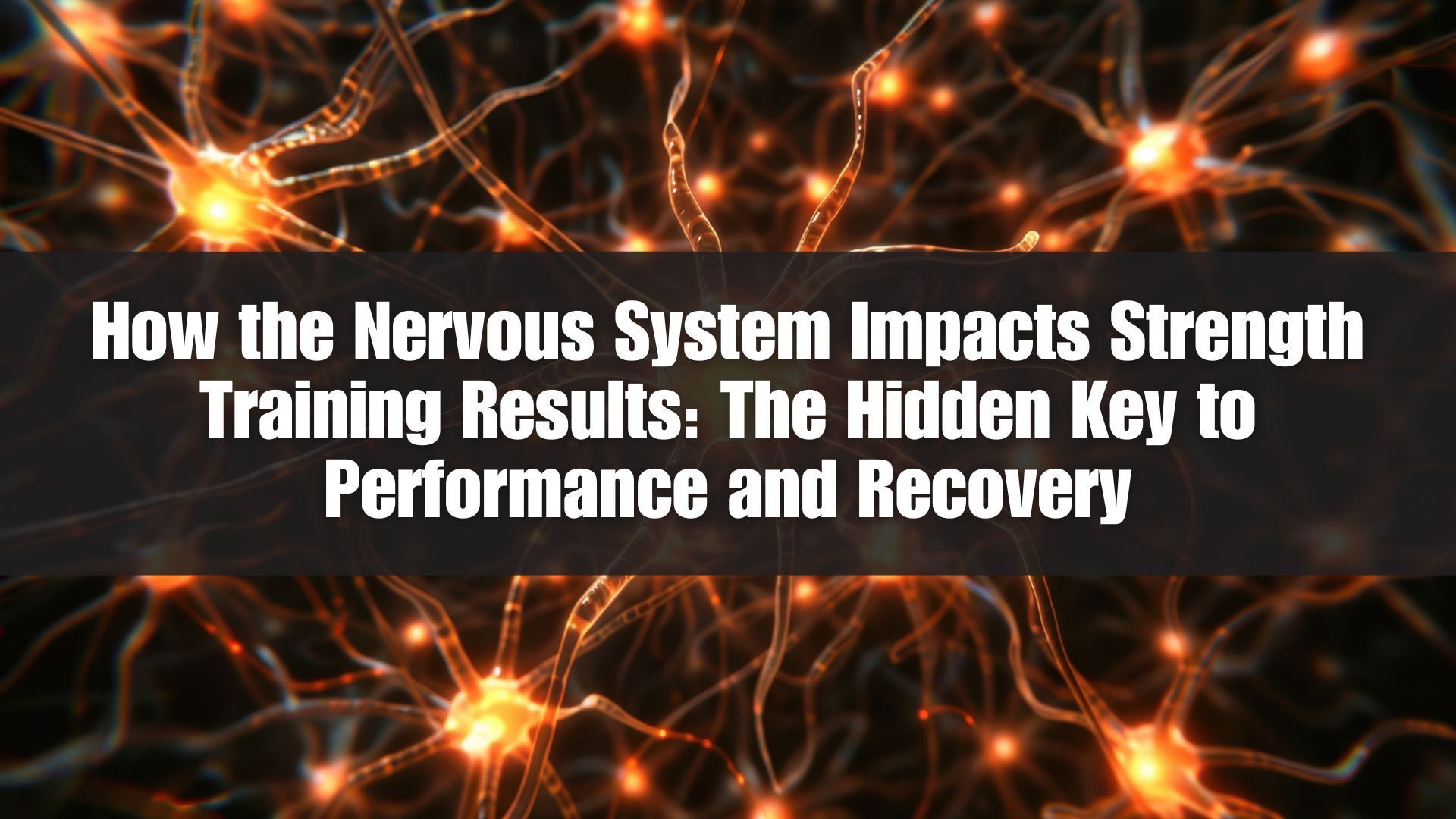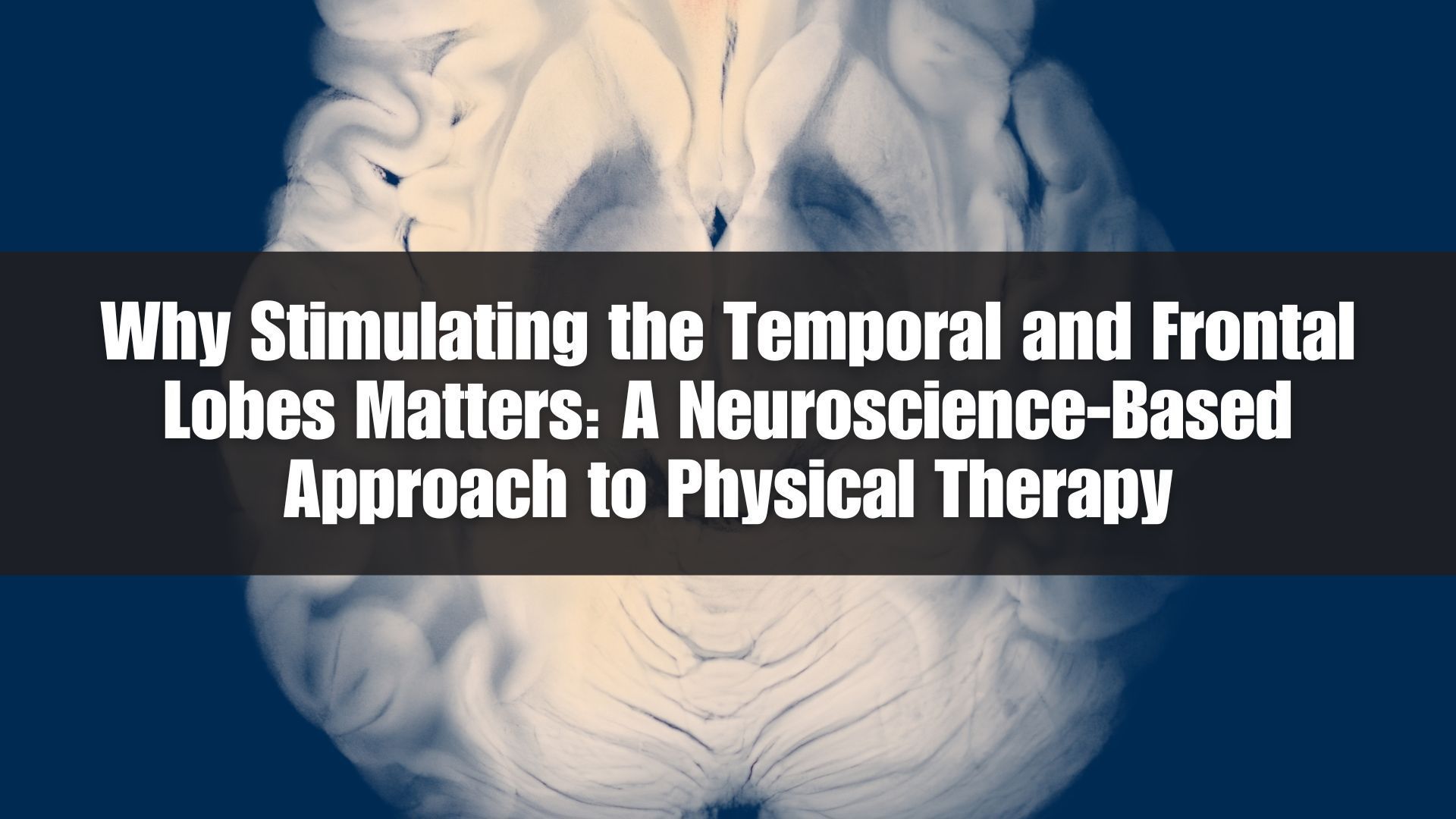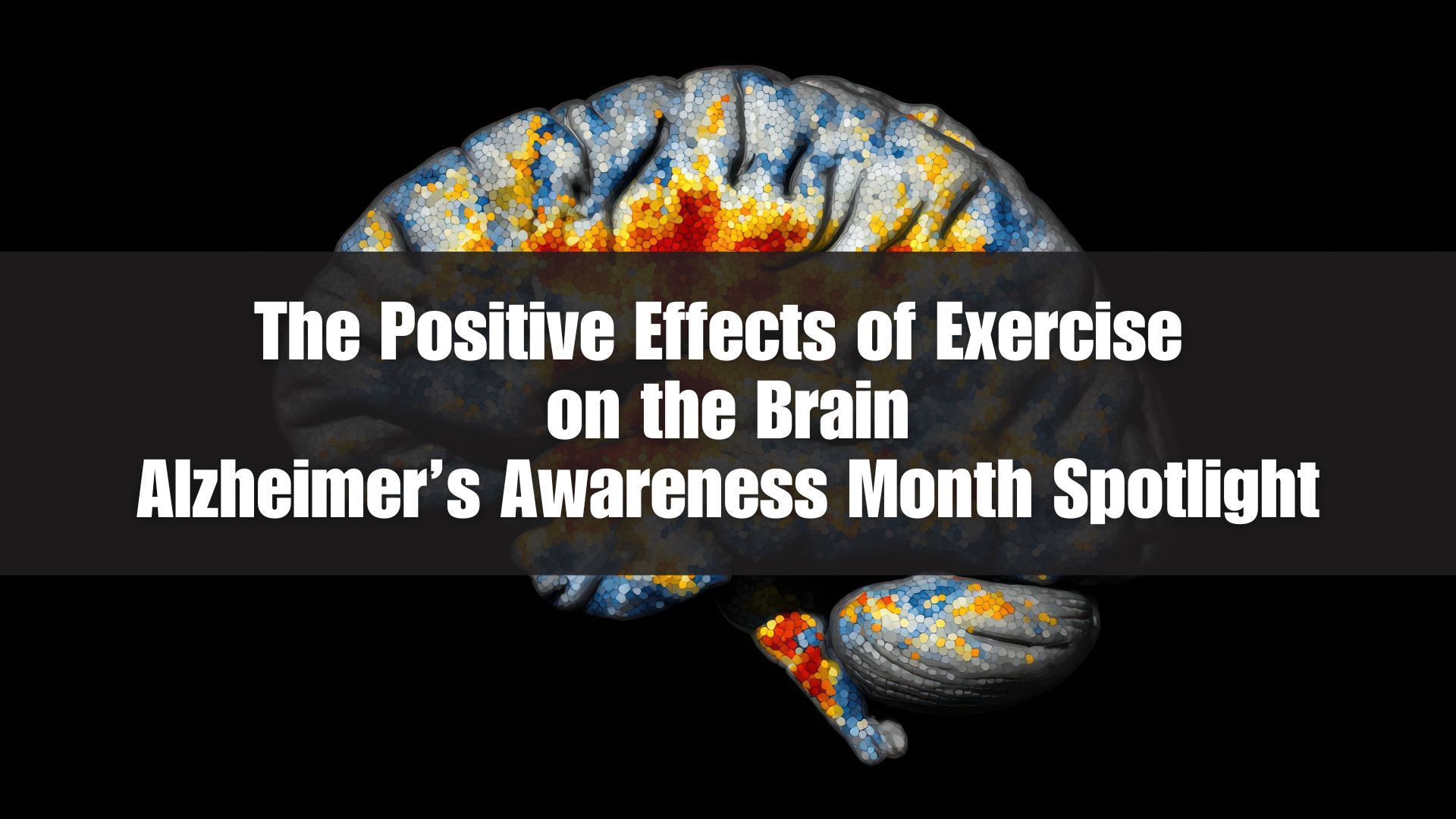Young Athletes & Concussions
recognize & rehab concussions with an overland park physical therapist

In the realm of youth sports, ensuring the safety and well-being of young athletes is paramount. One of the most critical aspects of this well-being is early diagnosis and awareness of concussions. With each concussion comes a unique journey of recovery, a journey that demands attention, patience, and care with an Overland Park physical therapist. The ability to recognize the signs and symptoms of a concussion and promptly address them can make all the difference in a young athlete's recovery and long-term health. Observable signs of a concussion may include:
- Falling unprotected to the playing surface
- Lying motionless on playing surface
- Balance/gait difficulties
- Blank or vacant look
- Inability to respond appropriately to questions
- Impact seizure
- High-risk mechanism of injury
First and foremost, early diagnosis of concussions is crucial for preventing further injury. Unlike other sports-related injuries that may be immediately visible, such as sprains or fractures, concussions can often go unnoticed or be mistaken for less serious issues. This is especially true for young athletes who may be hesitant to report symptoms for fear of being sidelined or letting down their team. However, failing to recognize a concussion and allowing an athlete to continue playing can put them at risk of more severe injury, prolong recovery time, and increase the likelihood of long-term complications. A physical therapist in Overland Park can assist in creating an appropriate recovery and rehabilitation plan.
Concussions are complex injuries that require a multifaceted approach to treatment, including cognitive rest, physical rest, and gradual return-to-play protocols. By identifying concussions early on, coaches, parents, and medical professionals, such as Overland Park physical therapists, can implement these interventions promptly, minimizing the impact of the injury and facilitating a smoother recovery process. This not only improves the athlete's short-term prognosis but also reduces the risk of long-term complications and ensures they can return to sports safely when they are ready.
An Overland Park physical therapist can help guide young athletes and their families in creating an appropriate Return to Sport (RTS) timeline. Generally, the RTS timeline recommended by the CDC includes the following six stages:
- Rest followed by a slow return to school and other light daily activities
- Minimal aerobic activity
- Moderate activity
- Non-contact drills
- Return to practice and full contact
- Return to sports activity following recovery
During the RTS timeline, young athletes may work with a physical therapist in Overland Park on specific areas of physical rehabilitation such as heart rate monitoring, cortical stimulation, and vision work. Each of these physical elements are foundational in returning to the field at full capacity.
Monitoring heart rate during physical activity after a concussion can be insightful for several reasons including assessment of recovery, safety of exercise, preventing overexertion, and measurement. Heart rate monitoring provides information into how the body is responding to physical exertion post-concussion. If the heart rate elevates disproportionately to the level of activity, it could indicate ongoing issues related to the concussion. It can also help a physical therapist in Overland Park guide young athletes through exercise appropriately, increasing weight intervals and drills at the recommended rate. Post-concussion symptoms such as headaches, dizziness, and fatigue can be worsened by excessive physical exertion; heart rate monitoring provides objective data to gauge the individual's response to physical activity. Overall, monitoring heart rate after a concussion is important for ensuring both safety and effectiveness in the management of symptoms and the gradual return to normal levels of physical activity.
Cortical stimulation after a concussion refers to techniques aimed at promoting neural recovery and adaptation in the brain's cortex, the outer layer responsible for higher cognitive functions. Cortical stimulation with an Overland Park physical therapist is important in concussion recovery by encouraging neuroplasticity, cognitive rehabilitation, symptom management, and accelerated recovery. Concussions can disrupt various cognitive functions such as attention, memory, and executive functioning. Cortical stimulation techniques can target specific cortical regions involved in these functions, aiding in cognitive rehabilitation and improving functional outcomes.
A final pillar in concussion recovery for young athletes is vision work. Vision work after a concussion is crucial for several reasons, including:
- Lessening visual symptoms such as blurred vision, double vision, light sensitivity, and difficulty focusing.
- Improving balance and coordination on and off the field.
- Increasing cognitive functioning processes like attention, memory, and executive function which in turn affect visual attention, visual memory, and visual processing speed.
- Managing headaches caused by problems such as eye strain and visual fatigue.
- Accelerating the return to the field which requires good visual skills for optimal performance and safety.
One rehabilitation exercise used by Overland Park physical therapists in the Brock String Exercise which improves the eyes ability to work together when focusing on objects close to the body. The Brock String Exercise involves taping a string with three beads placed to assess visual acuity at certain distances to a wall. Throughout recovery, this exercise and provide information on an athlete’s progress.
Prioritizing concussion recovery sends a powerful message to young athletes about the value of their health and well-being. In a culture that often glorifies toughness and resilience, athletes may feel pressure to push through pain and ignore their symptoms. However, by emphasizing the importance of proper recovery protocols, coaches, parents, and medical professionals can instill in young athletes a sense of responsibility for their own health. Teaching them to listen to their bodies and seek appropriate care when needed lays the foundation for a lifetime of good health habits.
In addition to protecting individual athletes, early diagnosis and awareness of concussions contribute to the overall safety and integrity of youth sports. By prioritizing the health and well-being of athletes over wins and accolades, coaches and administrators set a positive example for the entire sports community. They demonstrate that player safety is non-negotiable and that every precaution should be taken to minimize the risk of injury. This not only creates a safer environment for young athletes but also fosters a culture of respect and accountability that benefits everyone involved in sports.
In conclusion, early diagnosis and awareness of concussions are essential components of safeguarding young athletes' health and well-being. By recognizing the signs and symptoms of concussions early on, providing timely and appropriate care, and promoting a culture of openness and communication surrounding head injuries, we can ensure that young athletes can continue to participate in sports safely and enjoyably for years to come.
If you believe your young athlete has suffered a concussion, our team of Overland Park physical therapists at Elevate Physical Therapy and Training are here to help. Please
contact us today to schedule an assessment.





